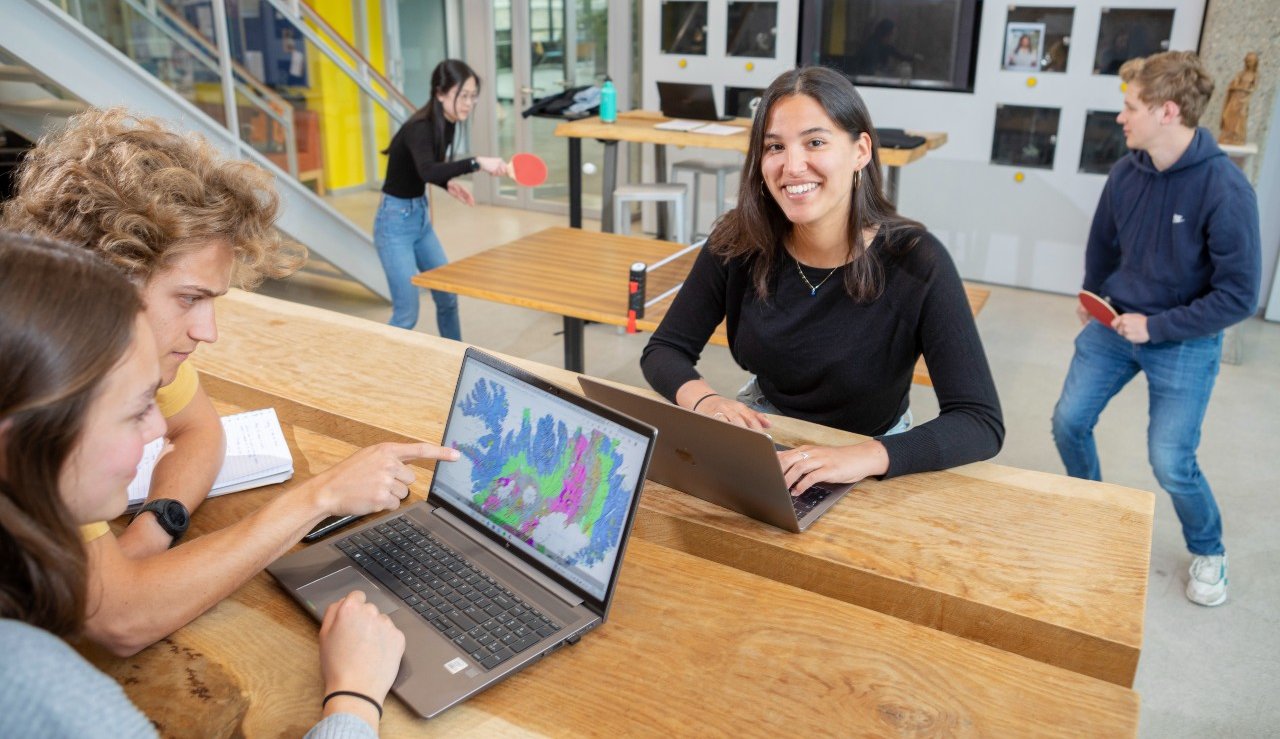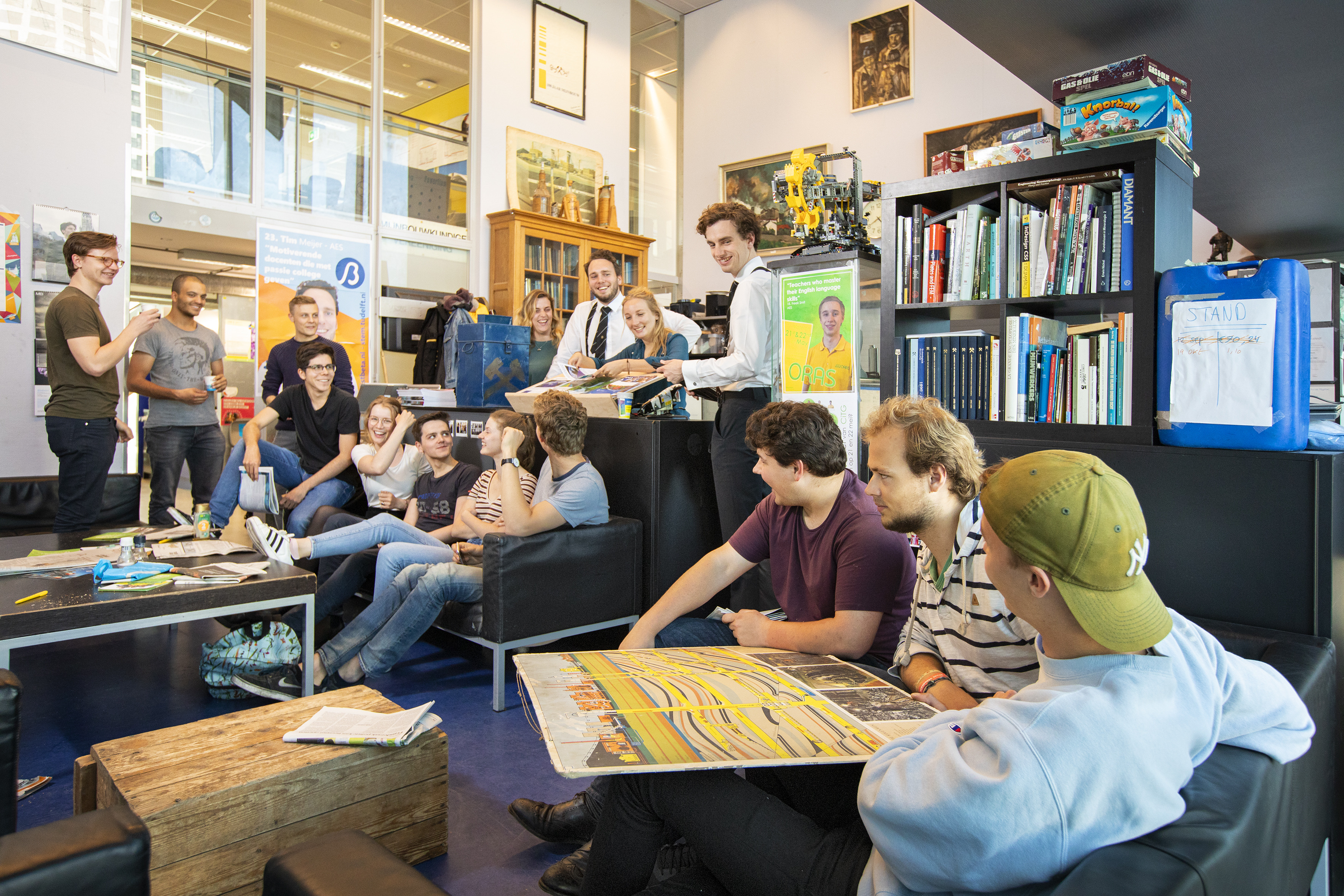About the programme
Applied Earth Sciences is a broad and international bachelor's programme that connects earth sciences and engineering. You will learn how to combine knowledge about the earth with engineering to for example monitor and predict effects of climate change, or develop smart technical solutions to deal with our earth in a more sustainable manner.
Unique for Applied Earth Sciences is its small-scale nature. Students from different year groups know each other and during your studies you are in close contact with lecturers and researchers who conduct internationally leading research.
During the bachelor programme, you will follow courses on geology, learning all about the Earth system and how to recognise different kinds of rocks and minerals. You will also study many technical subjects, such as mathematics, physics and chemistry. You learn to apply this technical knowledge to the earth, using probability calculations to for example predict the likelihood of an earthquake, soil mechanics to assess the solidity of the subsurface, and thermodynamics to determine whether an area is suitable for underground CO2 storage.
Field of study
At Applied Earth Sciences, you will focus on one of the largest research areas possible - the Earth. From a few kilometres underground to the atmosphere. You will use state-of-the-art technology to study the subsurface, surface and atmosphere and monitor changes. So we can divide the research field into:
- The atmosphere
- The surface
- The subsurface
You will deal with urgent and global issues. Such as climate change and subsequent natural hazards. Think about predicting earthquakes and how they affect an area. Or monitoring melting ice caps. What effect will this have on our sea level rise? Energy transition is also one of the big challenges within Applied Earth Sciences. You learn to contribute to a better handling of the earth with technical innovations. For this, knowledge of the subsurface and the surface is crucial.
interesting videos
Binding recommendation
TU Delft employs the BSA system: the binding recommendation on the continuation of studies. This means that you must obtain at least 75 per cent of your credits (i.e. 45 of the 60 ECTS) in your first year in order to continue your programme. If you receive a negative binding recommendation on the continuation of studies, you will not be permitted to enroll in this programme again in the next 4 years.
The study association, the MV, is for all students, PhD’s, alumni and employees involved with Applied Earth Sciences. Besides the activities that support the programme, the MV is also involved in fun supplementary activities for each of these target groups. The association also supports students in educational committees and in case of complaints.The MV also has its own pub in the city centre of Delft and is very active!


